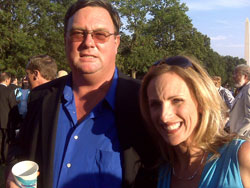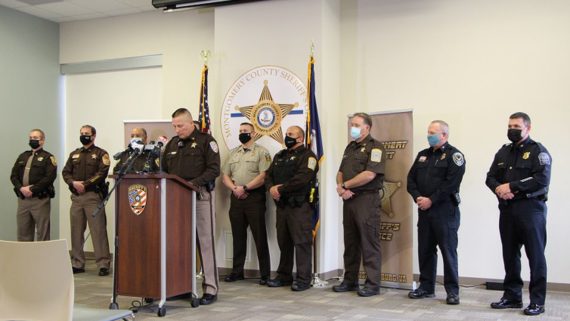
Glenn Koons and Actress Marlee Matlin
(4-8-21) From My Files Friday: It’s been nearly a decade since I posted this blog about one of the first and most inspiring peers I was fortunate enough to meet. His death made me wonder about how we treat peers. We expect them to be models of recovery. What happens if the symptoms of their illnesses surface? Are we there to support them?
Death Of An Advocate
First published September 2011
I first met Glenn Koons when I was invited to speak at a luncheon in Montgomery County, Pa., being hosted by the National Alliance on Mental Illness. It was one of the first speeches that I delivered after publication of CRAZY: A Father’s Search Through America’s Mental Health Madness and before my talk, veteran NAMI Board Member Carol Caruso introduced me to Glenn. I was immediately struck by his easy-going manner. Carol bragged that Glenn was one of the first NAMI trained Peer-to-Peer specialists in the entire nation. Glenn and I spoke for several minutes and I was impressed by his thoughtfulness and enthusiasm.
Our paths continued to cross during the coming years at various NAMI meetings and conventions. I was always happy to see Glenn and was thrilled when I learned that he had been one of only four NAMI peers who had been invited to the White House by President Obama to celebrate the 20th anniversary of the Americans with Disabilities Act of 1990.
A few weeks ago, I was asked to write an article for NAMI’s VOICES publication. In my article, I mentioned three “consumers” who have inspired me. They were Dr. Fred Frese, Diana Kern, and Glenn Koons.
The day after I submitted my article, an email arrived telling me that Glenn was dead.





